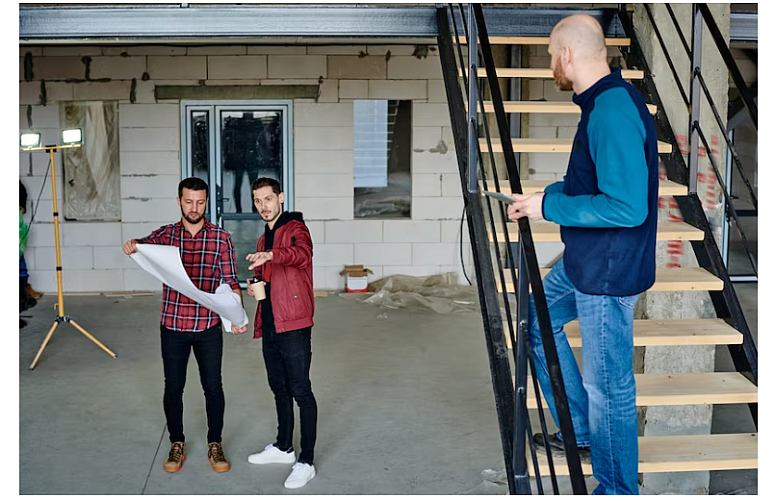
How to Buy a New Home in Canada as a First-Time Homebuyer
For Londoners looking to purchase a home in Canada, the process can seem both exciting and overwhelming, especially for first-time buyers. With key differences in property laws, mortgage options, and real estate practices, understanding the Canadian market is crucial.
Researching government incentives, such as the First-Time Home Buyer Incentive, and securing a reliable real estate agent familiar with the Canadian landscape are essential steps. Whether you're moving for work, family, or a fresh start, navigating the home-buying process smoothly will help make the transition from London to Canada a rewarding experience.
Buying a new home in Canada as a first-time homebuyer involves several important steps and considerations. Here's a step-by-step guide to help you through the process:
Assess Your Finances:
Determine your budget by evaluating your financial situation, including your income, expenses, debts, and savings. Get pre-approved for a mortgage to understand how much you can borrow and what your monthly payments might be.
Research and Location:
Decide on the type of property you want (detached, condo, townhouse, etc.). Research different neighbourhoods and cities to find a location that suits your lifestyle and needs.
Find a Real Estate Agent:
Look for a reputable real estate agent who specializes in your desired location. They can help you find suitable properties, negotiate, and navigate the buying process.
Search for Properties:
Start browsing listings online, attending open houses, and viewing properties with your real estate agent.
Property Evaluation:
When you find a property you like, assess its condition thoroughly. Consider hiring a professional home inspector to identify potential issues.
Make an Offer:
Work with your real estate agent to make a competitive offer based on market value, property condition, and your budget. Your offer may include conditions like obtaining financing, a satisfactory home inspection, and a review of property documents.
Negotiation:
Be prepared for negotiation with the seller. Your agent will help you navigate this process to reach an agreement.
Secure Financing:
Once your offer is accepted, work with your lender to finalize your mortgage application and secure financing.
Home Inspection and Other Conditions:
Schedule a professional home inspection to identify any potential issues. If there are significant concerns, you may negotiate repairs or a price reduction with the seller.
Remove Conditions:
Once you're satisfied with the inspection and any other conditions, you can formally remove them and proceed with the purchase.
Legal Process:
Hire a real estate lawyer to handle the legal aspects of the transaction, including title searches, contract reviews, and the transfer of ownership.
Closing Costs:
Budget for additional costs such as land transfer taxes, legal fees, property insurance, and possibly property tax adjustments.
Closing the Deal:
On the closing date, your lawyer will transfer funds to the seller, and you'll receive the keys to your new home.
Moving In:
Plan your move, transfer utilities, and update your address with relevant organizations. Remember that the homebuying process can vary by province and territory in Canada, so it's important to research local regulations and practices. Working with experienced professionals, such as a real estate agent and a lawyer, can make the process smoother and help you avoid common pitfalls.
First-Time Home Buyer Programs by Government:
Several government programs in Canada aim to support first-time homebuyers in achieving their homeownership goals. These programs can provide financial assistance, tax benefits, and other resources to make purchasing a home more affordable. Here are some of the key programs available:
Home Buyers' Plan (HBP):
This program allows you to withdraw up to $35,000 from your Registered Retirement Savings Plan (RRSP) to buy or build a qualifying home. The withdrawal is considered a loan and must be repaid within 15 years.
First-Time Home Buyer Incentive (FTHBI):
Through this program, the government provides a shared-equity mortgage to the first-time homebuyer. This means the government will contribute a portion of the down payment or share in the equity of the home, which can help reduce monthly mortgage payments.
Land Transfer Tax Rebates:
Many provinces in Canada offer land transfer tax rebates for first-time homebuyers, which can significantly reduce the upfront costs associated with purchasing a home.
GST/HST New Housing Rebate:
If you're buying a new construction home, the GST/HST new housing rebate enables an individual to recoup a portion of the GST or the federal component of the harmonized sales tax (HST) that they have paid on the purchase price.
Municipal Programs:
Some municipalities offer incentives or grants for first-time homebuyers. These programs can vary widely depending on your location.
Homeownership Education and Counseling:
Some provinces and organizations provide resources to educate first-time homebuyers about the home-buying process, financial management, and responsible homeownership.
Provincial Programs:
Each province may have its additional programs, incentives, or grants specifically tailored to first-time homebuyers. These can include down payment assistance programs, interest-free loans, or property tax relief.
It's important to note that eligibility criteria, application processes, and program details can vary between provinces and change over time. Before making any decisions, it's recommended that you thoroughly research the programs available in your specific area and consult with a financial advisor or a real estate professional who can provide you with accurate and up-to-date information.
Keep in mind that while these programs can offer valuable assistance, it's important to have a solid understanding of your financial situation and the responsibilities of homeownership before making a purchase.











